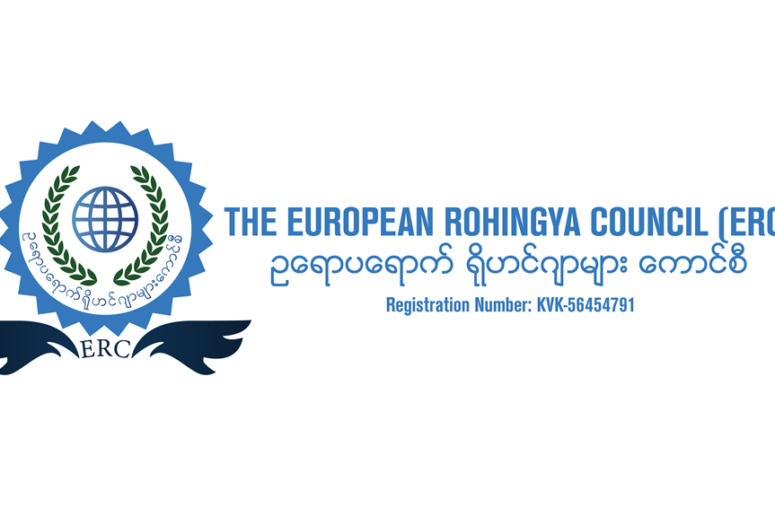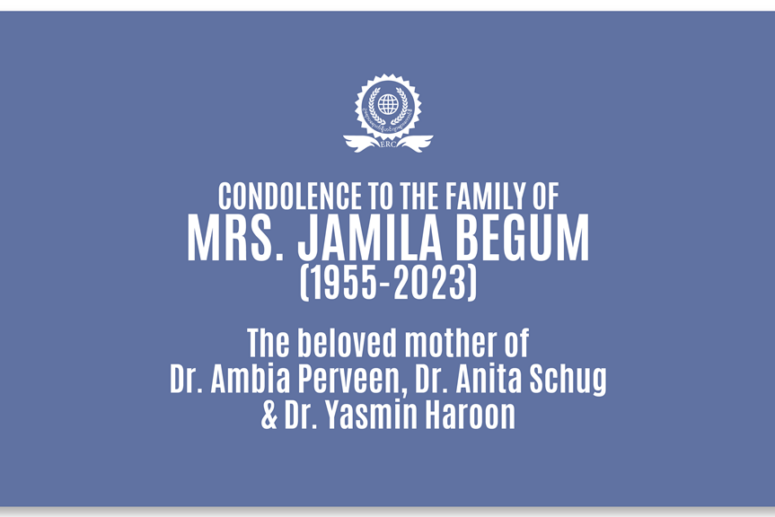Rohingya remember sixth Genocide Remembrance Day:
Protracted Justice, Accountability of Myanmar’s Genocide Stalled
The European Rohingya Council
Press Release
August 25, 2023
The Rohingya people across the world mark the sixth year of Rohingya Genocide Remembrance Day since Myanmar launched the state-sanctioned genocide against the Rohingya community on August 25, 2017. Justice and accountability for the victims and survivors of the genocide has been the coordinated and unified call to end the decades-long genocidal policies and practices being enforced on the Rohingya community. As the protracted justice and accountability of the genocide is stalled, the fate and future of over a million of Rohingya in apartheid-like conditions in Myanmar and squalid refugee camps in Bangladesh looks grim.
Six years ago, Myanmar Military (commonly known as Tatmadaw) and Aung San Suu Kyi’s National League for Democracy (NLD) launched a series of genocidal campaigns under the name of “Clearance Operations” in northern Arakan (Rakhine) State, which have resulted in mass-exodus of over 750,000 Rohingya to neighbouring Bangladesh, killing tens of thousands of Rohingya civilians, raping of hundreds of Rohingya girls and women, enforced disappearance of many Rohingya scholars and elders, destruction of over 390 villages and confiscation of lands and properties.
The genocidal campaigns in 2017 were the culmination of the international community’s failure to hold the military accountable over the past fifty years. The foundation of the slow-genocide against the Rohingya community was laid down when the first Myanmar’s military dictator General Ne Win seized power in 1962, who had slowly and systematically implemented policies, laws and military campaigns against the community, which have been further carried out by the successive military juntas and the civilian governments.
Over the course of sixty one years, the Rohingya people have been stripped of their nationality, ethnicity and rights to self-identification as ‘Rohingya’, and subjected to extreme measures such as denials of freedom of movement, education, healthcare, marriage, religion, livelihood, landownership, among others. Coupled with several military campaigns, for examples, in “King Dragon Operation” in 1978 and “Operation Clean Nation” in 1991/2, the institutionalised policies and practices are the measures to stifle and destroy the Rohingya community as a whole.
The devastative effects are crystal clear and well-documented – around 100,000 Rohingya civilians still are confined to IDP (Internally Displaced Persons) camps across Arakan State since 2012 preventing them basic rights and return to their homes; the Rohingya population in Arakan State has been reduced from over 1.3 million in 2016 to approximately 480,000 in 2017 as the means of brutal forceful depopulation in the region; the vast majority of remaining Rohingya live in apartheid-like conditions without access to fundamental rights in their birthplace; the empty Rohingya villages have been restructured and seized by the military and the Rakhine community; nearly a million Rohingya linger in refugee camps in Bangladesh with no sights of returning home in Arakan State with safety, dignity, restoration of full rights including ethnicity and citizenship, and justice served.
The lack of effective international accountability has emboldened Myanmar Military’s Senior General Min Aung Hlaing to stage the coup in February 1, 2012. The military dictator has since unleased crimes against humanity and atrocities across the country with impunity.
In Bangladesh refugee camps, the trauma and lived-experience of the genocide revisit to a nearly million Rohingya refugees endured under Senior General Min Aung Hlaing whenever his military commits fresh atrocities unabated against civilians and ethnic communities in Myanmar.
On the sixth year of Rohingya Genocide Remembrance Day, the European Rohingya Council (ERC) calls upon the international community to renew its commitment to justice and accountability through every avenue available at its disposal such as the UN Security Council, the International Court of Justice (ICJ), the International Criminal Court (ICC). The international community, in particular ASEAN, should put pressure and take concreate actions on Myanmar Military to end the cycle of military dictatorship and its atrocities. The international community should also strive for the restoration of lost rights of the Rohingya community and prevent further deterioration of the rights in Myanmar.
The European Rohingya Council acknowledges the importance of the international community’s humanitarian supports which play as a lifeline to a million Rohingya refugees, mostly women and children. Cutting the vital supports has detrimental effects on the refugees. The European Rohingya Council renews the call to increase the humanitarian supports which is essential to ensure sustaining their education, healthcare and skills necessary for their livelihoods in the camps to be independent and self-reliance while they keep faith alive in the international justice and accountability.
For more information:
Dr. Ambia Perveen
Chairperson
The European Rohingya Council
info@theerc.eu
